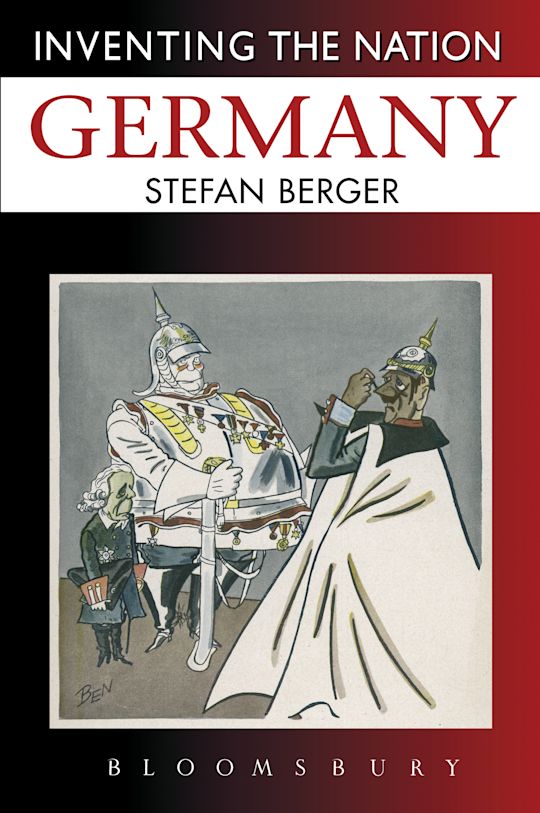- Home
- ACADEMIC
- History
- History - Other
- Germany
This product is usually dispatched within 3 days
- Delivery and returns info
-
Free US delivery on orders $35 or over
Exam copy added to basket
Choose your preferred format. Please note ebook exam copies are fulfilled by VitalSource™.
You must sign in to add this item to your wishlist. Please sign in or create an account
Description
'What is a German's fatherland?', asked Ernst Moritz Arndt at the
beginning of the nineteenth century. This has arguably been the central
question of modern German history. Germans did not have a united
fatherland until 1871, and, thereafter, major political events in 1918,
1933, 1945, 1968 and 1989 ensured that the answers to Arndt's question
proliferated and diverged with breath-taking speed.
Germany
explains the diverse ways in which national identity has been
constructed over more than three centuries. It focuses on the plurality
of contested definitions of 'Germanness'. The themes covered include the
struggles between democratic and non-democratic inventions of the
nation, the construction of the racial nation under Nazism, economic
definitions of the nation, foreigners and 'Germanness', the nation as a
'community of memory', the gendering of the national discourse, the
federal nature of German nationalism and the impact of war on the
construction of a German national identity. This is a fundamental
reappraisal of Germany's history from a perspective available only now
that the dust from the demolished Berlin Wall is settling in a reunited
Germany.
Product details

| Published | Jun 25 2004 |
|---|---|
| Format | Paperback |
| Edition | 1st |
| Extent | 320 |
| ISBN | 9780340705841 |
| Imprint | Bloomsbury Academic |
| Dimensions | 9 x 6 inches |
| Series | Inventing the Nation |
| Publisher | Bloomsbury Publishing |
About the contributors
Reviews
-
'[Berger's] insightful guide over this slippery but crucial terrain convincingly shows how each different 'Germany' was dependent on its predecessors and contemporary events.'
Choice
-
'It is overall an interesting, balanced, and very readable account of a fascinating and pertinent topic.'
Central European History Vol 38, No 4


































